language
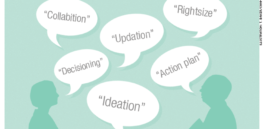
Blame human evolution for corporate jargon and thick academic prose
For anyone who’s ever worked in a large organization, this kind of message will be depressingly familiar: “Do you have ...

‘Speech-like signature’: Chimpanzees’ lip-smacks rhythm may offer clues about how we learned to talk
The evolution of speech is one of the longest-standing puzzles of evolution. However, inklings of a possible solution started emerging ...

Language evolved 25 million years ago, monkey brain study suggests
Curious about how people started talking, researchers from the UK scanned the monkey species and the brains of the people ...

Why it’s unlikely that humans gained the ability to speak through a single gene mutation
One of the most controversial hypotheses for the origin of the human language faculty is the evolutionary conjecture that language ...

‘Spoken language doesn’t leave fossils’: Did human’s ability to speak arise in an instantaneous hominin mutation?
Linguist Noam Chomsky suggested that a mutation in a single ancient ancestor gave rise to human language today ...

Our ancestors may have evolved the ability to talk 27 million years earlier than we thought
Some scientists have theorized that it only became physically possible to speak a wide range of essential vowel sounds when ...

Your dog may be paying closer attention to your words than you realize
Dogs pay much closer attention to what humans say than we realised, even to words that are probably meaningless to ...
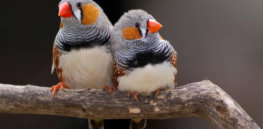
Podcast: Researchers implanted false memories in birds to figure out how humans learn language
Babies are constantly surrounded by human language, always listening and processing. Eventually they put sounds together to produce a "daddy," or a ...

Early speech exposure could boost language skills for kids with autism
The more words autistic children hear as infants — and the more verbal interactions they have with their caregivers — ...

Reconstructing the Neanderthal throat—did they have their own language?
At the very least, in order for spoken language to be a possibility, a species has to have the right ...

Do bilinguals have a lower risk of developing dementia?
If the benefits of being bilingual spill over to other aspects of cognition, then we would expect to see a ...

Tracing the birth of new languages—as older tongues fade away
Anthropologists and linguists are working to understand how complex systems of communication emerge—and what they reveal about how to keep ...

WTF? Did the rise of agriculture—and soft foods—give us the ability to drop F bombs?
How the foods we eat influence the sounds our languages develop ...
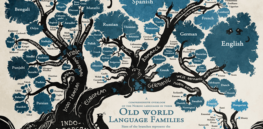
How languages and genetics explain our origins and evolution
The twists and turns of both language and genetics offer stunning insights into human history ...

‘Russian blues’: How language shapes the way our brains perceive the world
Does the language you speak influence how you think? This is the question behind the famous linguistic relativity hypothesis, that the grammar ...

Speaking a second language could help your aging brain
[D]oes mastering a second language hone our multitasking skills or merely muddle us up? … In the Annual Review of Linguistics, ...

Did Neanderthals have their own language?
Did Neanderthals have language? Before trying to answer that, I should admit my bias: I’m team Neanderthal. As an anthropologist ...
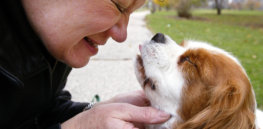
Dogs and words: Do they really understand what we’re saying?
A new study by scientists at Emory University and published Monday [Oct. 15] in the journal Frontiers in Neuroscience suggests dogs possess ...

What do toddlers and chimpanzees have in common? They use the same unspoken language
Prior to developing the capacity for speech, toddlers communicate their desires, demands, and discontent using a diverse repertoire of physical ...

Talk, talk talk: We have 193 countries but have evolved more than 8,400 languages
In Italy they speak Italian. In Germany they speak German, and in Denmark, Danish. If this was true for all ...

Why other primates can’t talk: It’s all in the brain
Compared to humans, most primates produce a limited range of vocalizations: At one end of the spectrum, there’s the Calabar angwantibo, ...
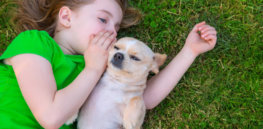
We talk to our dogs. Do they understand the words we use?
Dogs know what 'get the ball' means, but do they truly understand what we say? ...

Does language change the way our brains see the world?
Picture a sunlit Grecian sea or the deep hues of Santorini’s rooftops. They’re both called “blue” in English. But to ...

